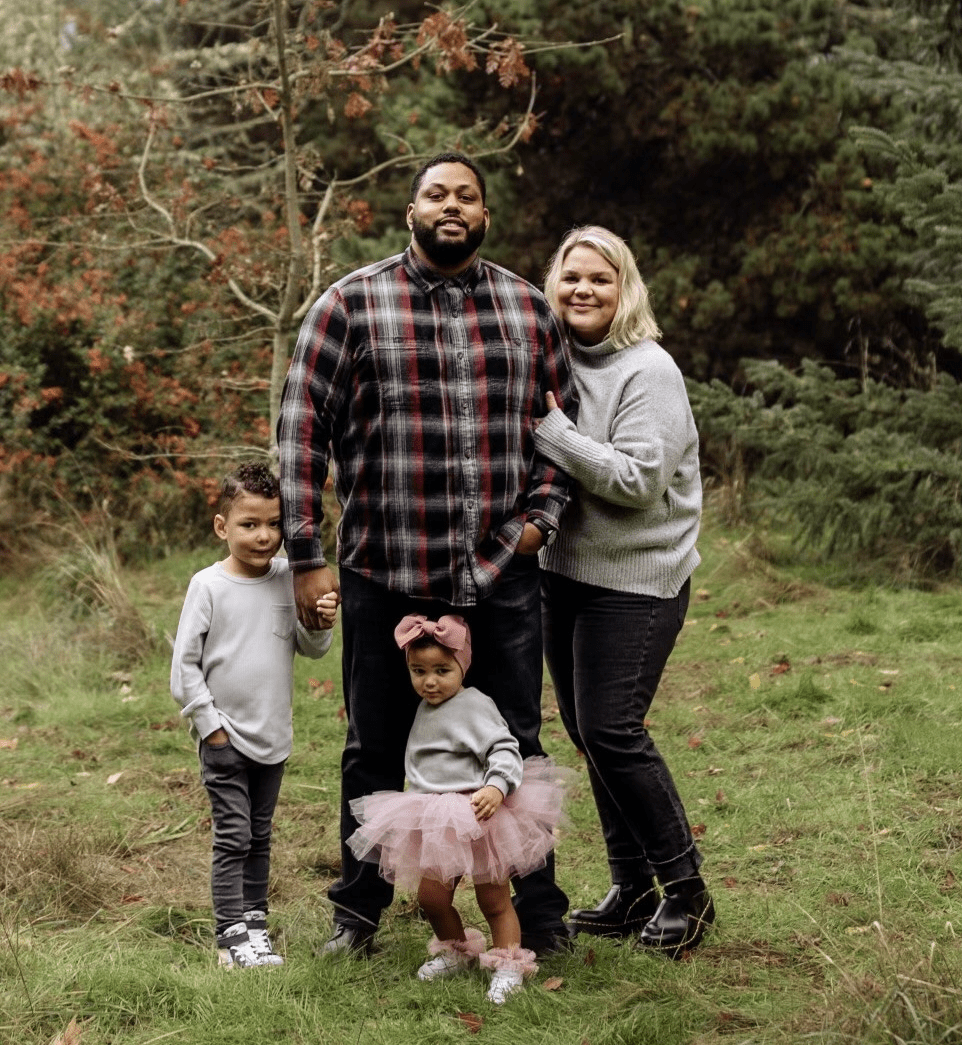 Darius Foster with his family. Photo credit: Darius Foster
Darius Foster with his family. Photo credit: Darius Foster Blog stats: 600 words | 3-minute read
We’re hosting a series of Roadside Chats with employees on our team at the Seattle Department of Transportation as we celebrate Black History Month 2024. We hope you enjoy this conversation with Darius Foster, who is the manager of SDOT’s Unified Care Team in the Street Use Division.
Please tell us about yourself. What’s your current role at SDOT? What do you enjoy most about your role?
Hello, I’m Darius Foster, the manager of the SDOT Unified Care Team within the Street Use Division. I’ve been with SDOT since July 2023, marking nearly 9 years of service with the City of Seattle. Prior to this role, I’ve held positions at Seattle’s Finance and Administrative Services, Office of Labor Standards, and Seattle Public Utilities, focusing primarily on program and project management.
I currently reside in Lake Stevens with my wife Candace and our two children, Cade (7) and Charlotte (4). Originally from North Carolina, I’ve been in the Pacific Northwest for almost a decade and am still adjusting to the region!
In my current capacity, I have the privilege of leading a team of dedicated individuals responsible for managing encampment-related activities in South Seattle. This encompasses a range of tasks, including encampment removals, debris collection, site inspections, and addressing daily obstructions.
Can you share the personal significance Black History Month holds for you?
To me, Black History Month is a celebration of the significant milestones that have shaped American history in positive ways. It serves as a reminder of the countless contributions made by black Americans to our nation.
Additionally, it affirms hope and prosperity within Black communities. While acknowledging the challenging realities of our country’s history, it also highlights the voices of Black Americans who have tirelessly worked to create a more equitable and just world for future generations.

How do you see your contributions at SDOT helping to create positive impacts at work, within the community, or in other ways?
I am a representative of the community I serve. My aspiration to work for local government dates back to my childhood. As a people leader, it’s crucial for the community to see themselves reflected in the SDOT’s workforce.
A diverse workforce not only demonstrates the City’s dedication to leading by example but also helps combat bias. It sends a powerful message that people of color are valued and have equal potential and access to job opportunities within the city, just like anyone else.
Do you have any personal stories or experiences that have shaped your perspective on Black history and its significance in the context of government work?
In the early stages of my career in the City, I had the honor of working alongside a Division Director and Deputy Director, both of whom were Black men. Witnessing their leadership firsthand was a profound experience. They led with a remarkable combination of confidence and compassion, navigating challenging work scenarios with skill and grace.
Learning about their career journeys and the obstacles they faced as young Black professionals striving to be recognized for their accomplishments rather than their appearance was truly eye-opening. Above all, I realized that their success as leaders was made possible by the trailblazers who came before them – Black Americans who have left an enduring legacy in our nation’s history.